Keratoplasty /Cornea Transplant Surgery in Bhiwani
Affordable Corneal treatment with PK, DALK, DSEK & DMEK by the top cornea surgeons
![]() Affordable
Affordable
![]() Same Day Discharge
Same Day Discharge
![]() PK, DALK, DSEK & DMEK Available
PK, DALK, DSEK & DMEK Available
![]() Free Consultation
Free Consultation
Cornea Transplant / Keratoplasty In Bhiwani
Keratoplasty, or Cornea Transplant, is a surgical procedure that can restore function to the cornea. A doctor will diagnose the patient’s eye condition and then decide if keratoplasty is the best option for them. The surgery typically takes around two hours and involves removing the damaged cornea and replacing it with a healthy one from a donor.
Post-operative care depends on the severity of the injury, but usually includes antibiotics to prevent infection and painkillers to relieve pain. Patients are generally able to return to work within a few days of the surgery.
If you are considering keratoplasty in Bhiwani, please speak to your doctor about your options. There is no single procedure that suits everyone, so your doctor will work with you to come up with an individualized plan that meets your needs.
Causes Of Corneal Diseases
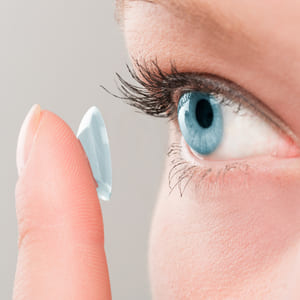
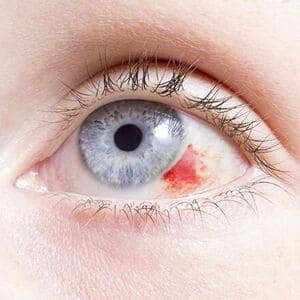
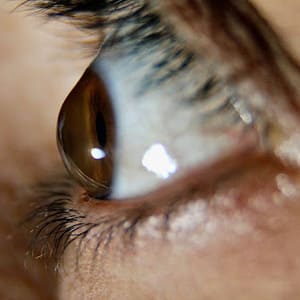
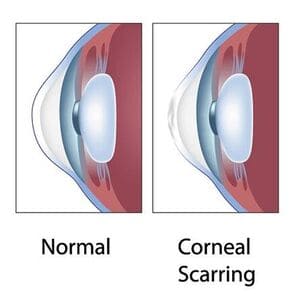
Types of Corneal Transplant Surgeries
There are several types of corneal transplant surgeries, each with its own benefits and drawbacks. Penetrating keratoplasty (PK), Descemet’s stripping endothelial keratoplasty (DSEK/ DSAEK), Descemet’s membrane endothelial keratoplasty (DMEK), deep anterior lamellar keratoplasty (DALK), and superficial anterior lamellar keratoplasty (SALK) are all types of keratectomy procedures that involve removing a small amount of the cornea’s surface area.
This is done in order to create enough space for the implant to be placed and to provide better vision.The main drawback of these procedures is that they can result in significant vision loss. In particular, DSEK/ DSAEK can result in around 50% vision loss, while DMEK can lead to around 60%vision loss. Additionally, PK and SALK can often result in more severe vision impairment than other types of corneal transplant procedures. This is due to the fact that they require a greater amount of corneal tissue removal, which results in a higher risk of complications.
Overall, PK and SALK are among the most commonly performed types of corneal transplant surgery. They offer excellent visual outcomes, However, they carry a high risk of complication and require a high degree of expertise to perform successfully.
Cornea Transplant Surgery Cost In Bhiwani
The cost of corneal treatment surgery in Bhiwani varies between ₹40,000/eye to ₹80,000/eye depending on the procedure. MantraCare is one of the best cornea hospitals in Bhiwani, and it offers corneal treatment at the most competitive prices. MantraCare also offers insurance and financing EMI options for corneal treatment in Bhiwani to make the procedure more affordable for patients.
| Cornea Treatment Options | Description | Cost (₹) |
|---|---|---|
| Penetrating Keratoplasty (PK) in Bhiwani | Full thickness corneal transplant (entire cornea is replaced) | 55,000 |
| Descemet’s Stripping Endothelial Keratoplasty (DSEK/ DSAEK) in Bhiwani | Damaged inner corneal layer is removed through a small incision (Donor tissue is thicker & easier to transplant compared to DMEK) | 50000 |
| Descemet’s Membrane Endothelial Keratoplasty (DMEK) in Bhiwani | Damaged inner corneal layer is removed through a small incision | 50000 |
| Deep Anterior Lamellar Keratoplasty (DALK) in Bhiwani | Partial thickness corneal transplant (used in case of keratoconus or bulging cornea) | 45000 |
| Superficial anterior lamellar keratoplasty (SALK) in Bhiwani | Partial thickness corneal transplant wherein the front layer of the cornea is replaced (Stroma and endothelium are unharmed) | 45000 |
| Artificial Cornea Transplant (Keratoprosthesis) in Bhiwani | Corneal transplant with artificial cornea (If not eligible for a donor cornea) | 80000 |
Cornea Hospitals in Bhiwani
There are several cornea eye hospitals in Bhiwani, including MantraCare Bhiwani, Eye Clinic Bhiwani, Eye Center Bhiwani, and Eye Mantra Bhiwani. EyeMantra is one of Bhiwani’s leading Cornea treatment center, with over 100,000 eyes operated by its doctors. Our hospitals in Bhiwani are accessible from the following areas :
- Sector-13
- Rajiv Colony
- Dadri Gate
- Bound Kalan
- Krishna Colony
- Devsar
- Charkhi Dadri
- Surya Nagar
- M C Colony
- Defence Colony
- Garanpura
- Shiv Nagar Colony
- Sector-26
- Vijay Nagar
- Bharat Nagar
- Vidya Nagar
- Vikas Nagar
- Sector-23
- Siwani
- Bhiwani-Hansi Road
Top Corneal Treatment / Keratoplasty Doctors in Bhiwani

Cataract, Glaucoma, LASIK

LASIK

Femtosecond LASIK
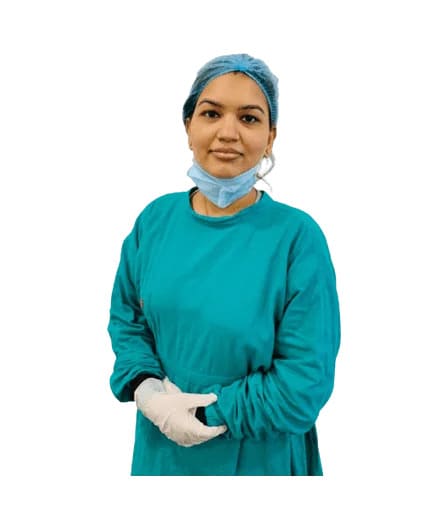
Femtosecond LASIK
Happy Patients from Bhiwani after Corneal Transplant / Keratoplasty

“I wanted to thank you for helping me with my corneal transplant surgery. I am feeling much better and the process was surprisingly pain-free. I am really happy with the results.”
– Sharon (Bhiwani)